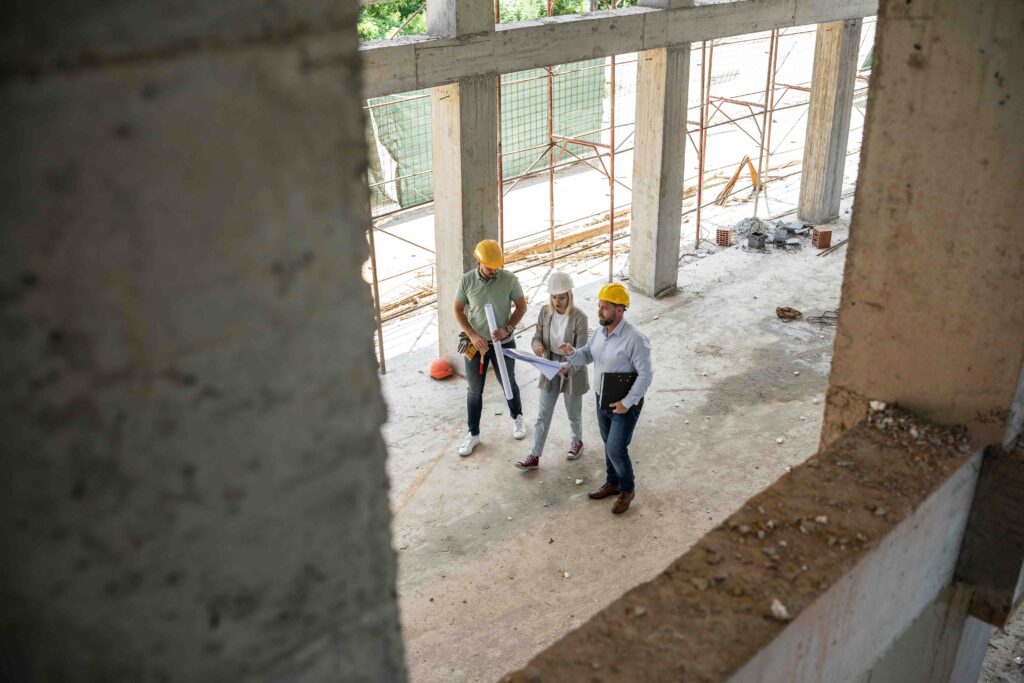Outsourcing construction management has become an increasingly popular strategy for construction companies looking to optimize project efficiency, reduce costs, and leverage expert skills without the burden of maintaining a full-time, in-house management team. However, effectively outsourcing construction management requires a strategic approach to ensure the partnership yields the desired results. This guide will walk you through the steps to successfully outsource construction management, including how to choose the right partner, set clear expectations, and maintain effective communication throughout the project lifecycle.

Why Outsource Construction Management?
Outsourcing construction management allows companies to bring in experienced professionals who can oversee the planning, coordination, and execution of construction projects. The benefits of outsourcing include:
- Access to Expertise: Outsourced construction managers are often seasoned professionals with extensive experience in managing diverse projects. They bring specialized skills and knowledge that can enhance project outcomes.
- Cost Efficiency: Hiring an outsourced team can be more cost-effective than maintaining a full-time, in-house staff, especially for companies with fluctuating project demands. Outsourcing allows you to pay for management services only when needed, reducing overhead costs.
- Scalability: Outsourcing provides the flexibility to scale management resources up or down based on project size and complexity. This adaptability is especially valuable for companies handling multiple projects or navigating busy seasons.
- Risk Mitigation: Professional construction managers are adept at identifying potential risks and implementing strategies to mitigate them. Their expertise can help prevent costly delays, budget overruns, and compliance issues.

Steps to Effectively Outsource Construction Management
1. Define Your Project Needs and Goals
Before you begin the outsourcing process, clearly define your project needs, goals, and scope. Consider the specific aspects of construction management that require external expertise, such as project planning, scheduling, cost control, quality assurance, or subcontractor coordination. By understanding your requirements, you can better identify a partner whose skills align with your project’s demands.
2. Research and Select the Right Outsourcing Partner
Choosing the right outsourcing partner is crucial to the success of your project. Here are key factors to consider:
- Experience and Expertise: Look for a partner with a proven track record in managing construction projects similar to yours. Review their portfolio, ask for case studies, and speak with past clients to gauge their experience and performance.
- Industry Knowledge: A partner with deep industry knowledge will understand the specific challenges and requirements of construction projects, from compliance with local building codes to managing supply chain disruptions.
- Technology and Tools: Ensure the outsourcing partner uses up-to-date project management tools and technology that align with your company’s systems. Compatibility in tools and software can facilitate smoother collaboration and better project tracking.
- Cultural Fit and Communication Style: A good cultural fit and strong communication are essential for effective collaboration. Choose a partner whose work style, values, and communication methods align with your company’s culture.
3. Set Clear Expectations and Agreements
To ensure a successful partnership, establish clear expectations and agreements from the outset. This includes:
- Scope of Work: Clearly outline the roles, responsibilities, and tasks that the outsourced construction manager will handle. Define the scope in detail to avoid misunderstandings later.
- Performance Metrics: Establish key performance indicators (KPIs) to measure the success of the partnership. These might include project timelines, budget adherence, quality benchmarks, and communication effectiveness.
- Contracts and SLAs: Draft comprehensive contracts and service level agreements (SLAs) that outline deliverables, timelines, payment terms, and conditions for termination. Ensure that all terms are clearly defined and agreed upon by both parties.
4. Foster Effective Communication
Effective communication is the backbone of successful outsourcing relationships. To maintain alignment and ensure the project stays on track:
- Regular Check-ins: Schedule regular meetings to review progress, discuss any challenges, and adjust plans as needed. These check-ins help maintain transparency and keep everyone on the same page.
- Use Collaborative Tools: Utilize project management and communication tools such as Microsoft Teams, Slack, or Trello to facilitate real-time updates, task tracking, and document sharing. These platforms help bridge the gap between your in-house team and the outsourced partner.
- Open Feedback Channels: Encourage open and constructive feedback from both sides. A culture of continuous feedback allows for quick adjustments and improvements, enhancing the overall effectiveness of the partnership.
5. Monitor Performance and Provide Support
Once the project is underway, continuously monitor the performance of the outsourced construction management team against the agreed-upon KPIs. Provide support and resources as needed to help them achieve the project goals.
- Track Progress: Use project management dashboards to track progress in real-time. Monitor timelines, budget adherence, quality checks, and risk management to ensure everything is on track.
- Offer Guidance and Resources: Even though you are outsourcing, your involvement and support can be critical. Provide the outsourced team with the resources, information, and guidance they need to perform effectively.
- Celebrate Milestones: Recognize and celebrate project milestones and achievements. Acknowledging progress helps to maintain motivation and strengthen the partnership.
6. Review and Reflect
At the conclusion of the project, conduct a thorough review to assess the performance of the outsourced construction management team. Reflect on what went well and what could be improved for future projects.
- Post-Project Evaluation: Evaluate the success of the project against the initial goals and KPIs. Consider conducting a post-project review meeting with the outsourcing partner to discuss lessons learned and areas for improvement.
- Feedback Loop: Use the insights gained from the project review to refine your outsourcing strategies for future projects. This continuous improvement approach ensures that each subsequent outsourcing engagement becomes more efficient and effective.

Common Challenges in Outsourcing Construction Management and How to Overcome Them
- Communication Barriers: Differences in time zones, languages, or work cultures can create communication challenges. Overcome this by establishing clear communication protocols, using collaborative tools, and scheduling regular updates.
- Quality Control: Ensuring that the outsourced team maintains the quality standards of your company can be challenging. Set clear quality benchmarks, conduct regular inspections, and provide feedback promptly.
- Integration with In-House Teams: Integrating an external management team with your in-house staff can sometimes lead to friction or misalignment. Facilitate integration by clearly defining roles, encouraging collaboration, and fostering a team-oriented culture.
- Managing Expectations: Misaligned expectations can lead to dissatisfaction on both sides. Avoid this by setting realistic expectations from the start, being transparent about goals, and maintaining open lines of communication.

Outsourcing construction management with Virtual Construction Assistants
Outsourcing construction management can provide significant benefits, including cost savings, access to specialized expertise, and increased project efficiency. However, the success of outsourcing depends on selecting the right partner, setting clear expectations, and maintaining effective communication throughout the project. By following the steps outlined in this guide, construction companies can navigate the outsourcing process with confidence and achieve their project goals more effectively.
Ready to explore construction management outsourcing for your next project? Virtual Construction Assistants offers expert management services tailored to the construction industry. Contact us today to learn how we can help you streamline your projects and drive success!
